Monday, April 18, 2011
Posted by
n
at
8:12 PM
[Q] ENGLISH a big necessity in clearing IAS and State PSC exam
Got question via email
Ans:
As per new pattern in IAS exam (known as CSAT), there will be compulsory English grammar/ comprehension questions in the prelim paper-II. [its marks will be counted in the prelim-selection list]
In the mains exam of IAS, there is a compulsory english language paper, but its marks are not counted in the final merit list. However, in some State PSCs such as Gujarat, the marks of compulsory English language paper (mains) are counted in the final merit list.
So yes English has became a big necessity for clearing competitive exams be it IAS and State PSC or Bank.
I wanted to ask that is ENGLISH a big necessity in clearing IAS exam and other STATE PSC'S..
Ans:
As per new pattern in IAS exam (known as CSAT), there will be compulsory English grammar/ comprehension questions in the prelim paper-II. [its marks will be counted in the prelim-selection list]
In the mains exam of IAS, there is a compulsory english language paper, but its marks are not counted in the final merit list. However, in some State PSCs such as Gujarat, the marks of compulsory English language paper (mains) are counted in the final merit list.
So yes English has became a big necessity for clearing competitive exams be it IAS and State PSC or Bank.
Sunday, April 17, 2011
Posted by
n
at
10:28 AM
IMPORTANT DAYS FOR UPSC PRELIMS
January | |
27 | |
February | |
2 | world's wetlands day |
March | |
8 | International Women's Day and UN Day for Women's Rights and International Peace |
21 | International Day for the Elimination of Racial Discrimination |
21 March - 28 March | Week of Solidarity with the Peoples Struggling against Racism and Racial Discrimination |
22 | World Water Day |
23 | |
April | |
4 | International Day for Mine Awareness and Assistance in Mine Action |
7 | |
23 | World Book and Copyright Day |
May | |
3 | |
15 | |
17 | World Information Society Day (formerly World Telecommunication Day) |
21 | |
22 | International Day for Biological Diversity (formerly December 29, changed in 2001) |
25 May - 1 June | Week of Solidarity with the Peoples of Non-Self-Governing Territories |
29 | |
31 | World No-Tobacco Day |
June | |
5 | |
17 | |
20 | |
23 | |
26 | International Day Against Drug Abuse and Illicit Trafficking and International Day in Support of Victims of Torture |
July | |
1st Saturday | |
11 | World Population Day |
August | |
9 | International Day of the World's Indigenous People |
12 | International Youth Day |
23 | International Day for the Remembrance of the Slave Trade and its Abolition |
September | |
8 | International Literacy Day |
16 | International Day for the Preservation of the Ozone Layer |
21 | International Day of Peace (formerly the opening day of the UN General Assembly, changed to a set date as of 2002) |
During last week | World Maritime Day |
October | |
1 | International Day for the Older Person |
4 October - 10 October | World Space Week |
5 | World Teacher's Day |
1st Monday | World Habitat Day |
2nd Wednesday | International Day for Natural Disaster Reduction |
9 | World Post Day |
10 | World Mental Health Day |
16 | World Food Day |
17 | International Day for the Eradication of Poverty |
24 | United Nations Day and World Developemnt Information Day |
24 October - 30 October | Disarmament Week |
November | |
6 | International Day for Preventing the Exploitation of the Environment in War and Armed Conflict |
14 | World Diabetes Day |
16 | International Day of Tolerance |
3rd Sunday | World Day of Remembrance for Road Traffic Victims |
20 | |
21 | World Television Day |
25 | International Day for the Elimination of Violence against Women |
29 | International Day of Solidarity with the Palestinian People |
December | |
1 | World AIDS Day |
2 | International Day for the Abolition of Slavery |
3 | |
5 | |
7 | |
9 | |
10 | Human Rights Day |
11 | International Mountain Day |
18 | International Migrants Day |
19 | |
20 | International Human Solidarity Day |
Posted by
n
at
10:25 AM
CANCUN AGREEMENT
The official talks of CONFERENCE OF PARITIES (COP-16) ended on December 10 ,2010 at Cancun , Mexico
Key outcomes from the agreements at the Summit
· Objective: agreed to peak emissions and an overall 2 degree target to limit temperature rise.
· Emissions: bringing details of what developed and developing countries are doing to tackle climate change, promised in Copenhagen
· MRV: agreed a system so we know how countries are living up to their promises to take action on emissions
· Long-term finance: established the Green Climate Fund and will start to get it ready to help developing countries go low carbon and adapt to climate impacts.
· Deforestation: agreed to slow, halt and reverse destruction of trees and agree the rules for delivering it and for monitoring progress.
· Technology/Adaptation: set up the mechanisms to help developing countries access low carbon technology, and adapt to climate change
THTHE COP-17 WILL BE HELD AT DURBAN,SOUTH AFRICA FROM NOV28th TO DEC 9th, 2011.
Friday, April 15, 2011
Posted by
n
at
11:02 AM
Civils General Studies Prelims Question Papers 1997-2009
The following are the prelims General Studies Question papers of the previous years.
Download by clicking on the Respective links.
Please leave a comment if you liked this post and to appreciate our effort.
Manav
2009 Prelims General Studies Download
2008 Prelims General Studies Download
2007 Prelims General Studies Download
2006 Prelims General Studies Download
2005 Prelims General Studies Download
2004 Prelims General Studies Download
2003 Prelims General Studies Download
2002 Prelims General Studies Download
2001 Prelims General Studies Download
2000 Prelims General Studies Download
1999 Prelims General Studies Download
1998 Prelims General Studies Download
1997 Prelims General Studies Download
Download by clicking on the Respective links.
Please leave a comment if you liked this post and to appreciate our effort.
Manav
2009 Prelims General Studies Download
2008 Prelims General Studies Download
2007 Prelims General Studies Download
2006 Prelims General Studies Download
2005 Prelims General Studies Download
2004 Prelims General Studies Download
2003 Prelims General Studies Download
2002 Prelims General Studies Download
2001 Prelims General Studies Download
2000 Prelims General Studies Download
1999 Prelims General Studies Download
1998 Prelims General Studies Download
1997 Prelims General Studies Download
Wednesday, April 13, 2011
Posted by
n
at
10:02 PM
Psychology- sample notes
I am uploading some of the notes I prepared for psychology from June 2009 to September 2009. Kindly go through the Psychology mains post for the strategy and sources I referred.
I will explain how I prepared the notes. But I repeat- this is the strategy I followed in 2009 for psychology. If what you are doing is very different, don’t worry. There are n number of ways to score. Just chalk out a plan and try your best to implement it.
MK: Morgan and King/ MP: Mukul Pathak sir’s notes/CK: Chaplin- Krawiec
Paper 1- Chapter 2: Observation
Since I prepared every topic as a 60 marker, for observation I collected 15-20 points which I could later expand in the exam. An easy way to do that is to compare the given topic with other related topics. So if observation alone comes as a 60 marker (most likely it will be in conjunction with some other topic), just link it with case studies, experimental research, interview, etc.
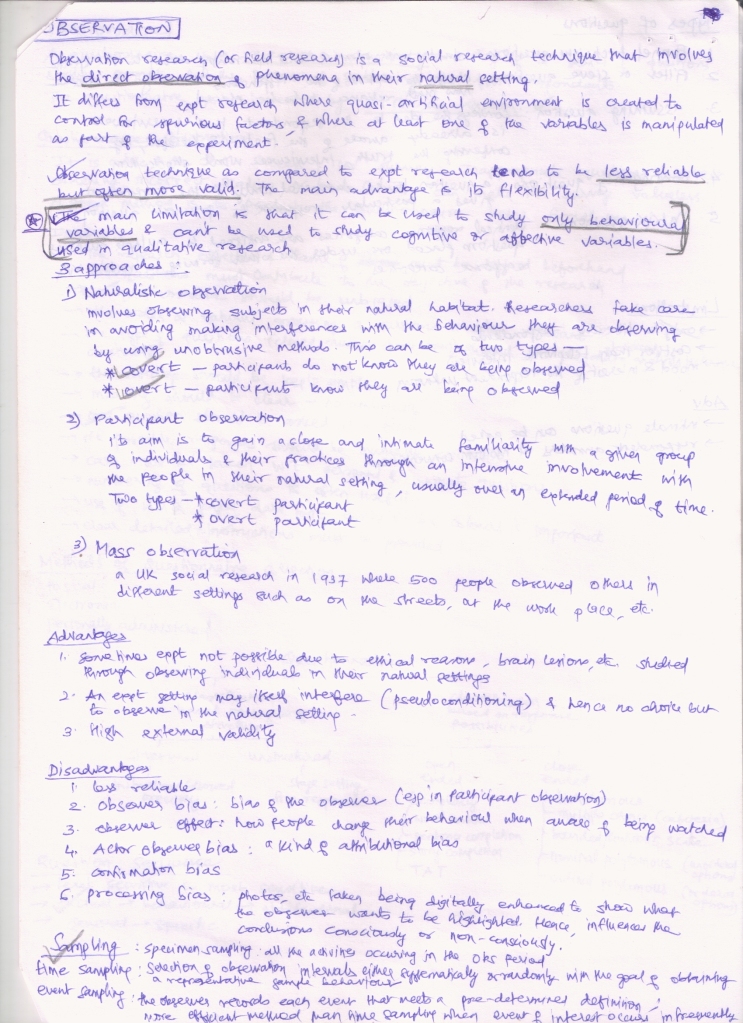

Paper 1- Chapter 3: IRT
Since IRT can be asked as a 60 marker, I prepared the basics in detail. There is no point in collecting 20 pages on it. Sometimes questions asked are very difficult to predict and attempt even when the topic has been prepared. In that case, I attempted some other question. But I didn’t go much beyond the basics. Every thing has to be balanced in the limited amount of time available for preparation.


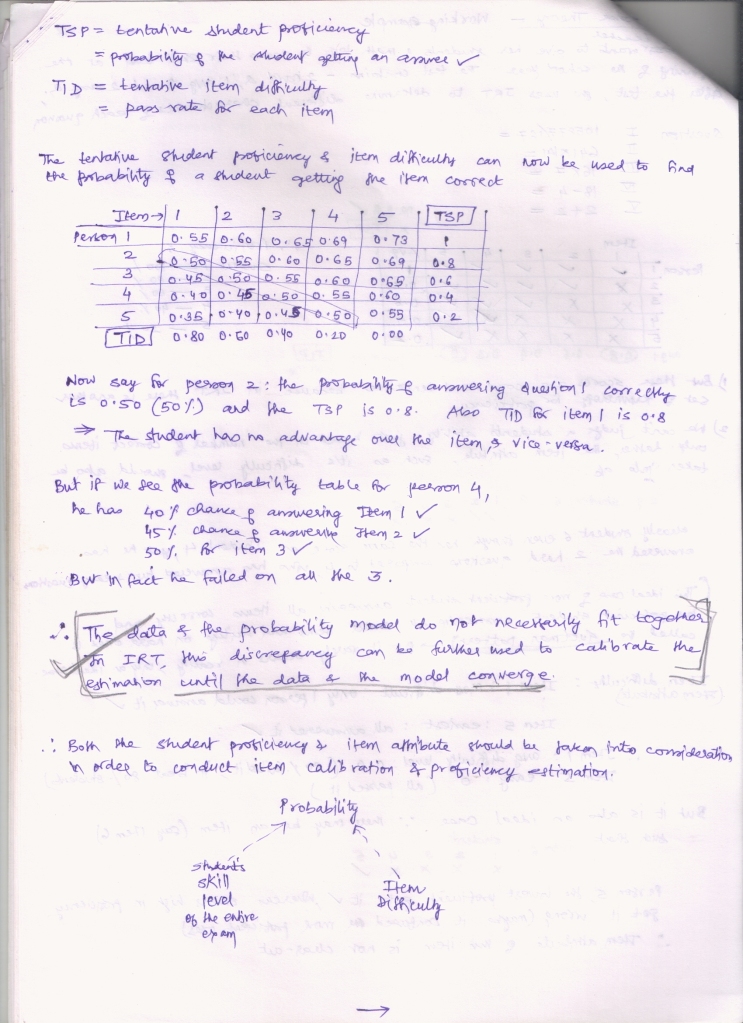
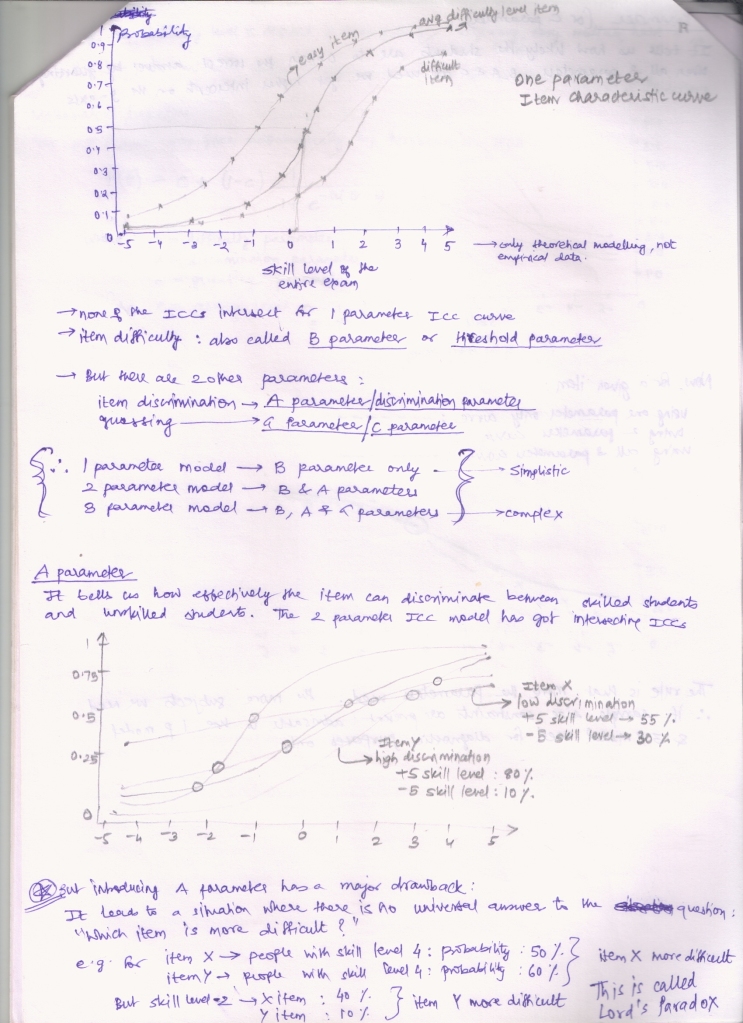
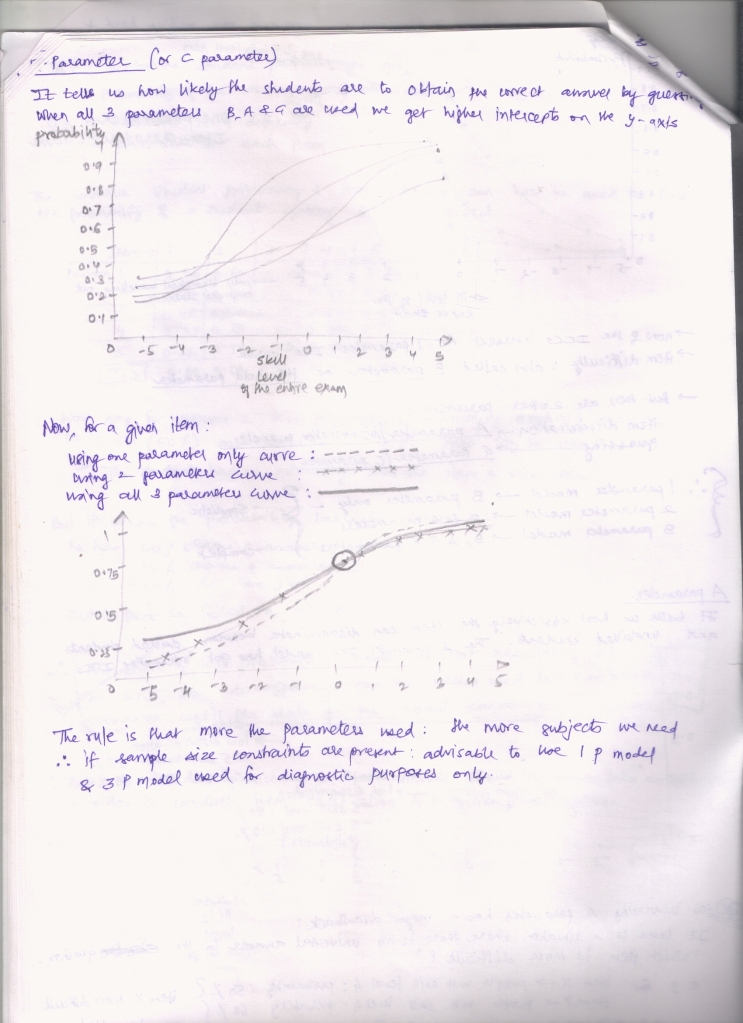

Paper 1- Chapter 4: Growth and development
It is a topic which has been very well covered in the books. So I didn’t refer any other source. I just noted each and every thing I could find in one place so as to make revision easier. A lot of time can be saved this way.
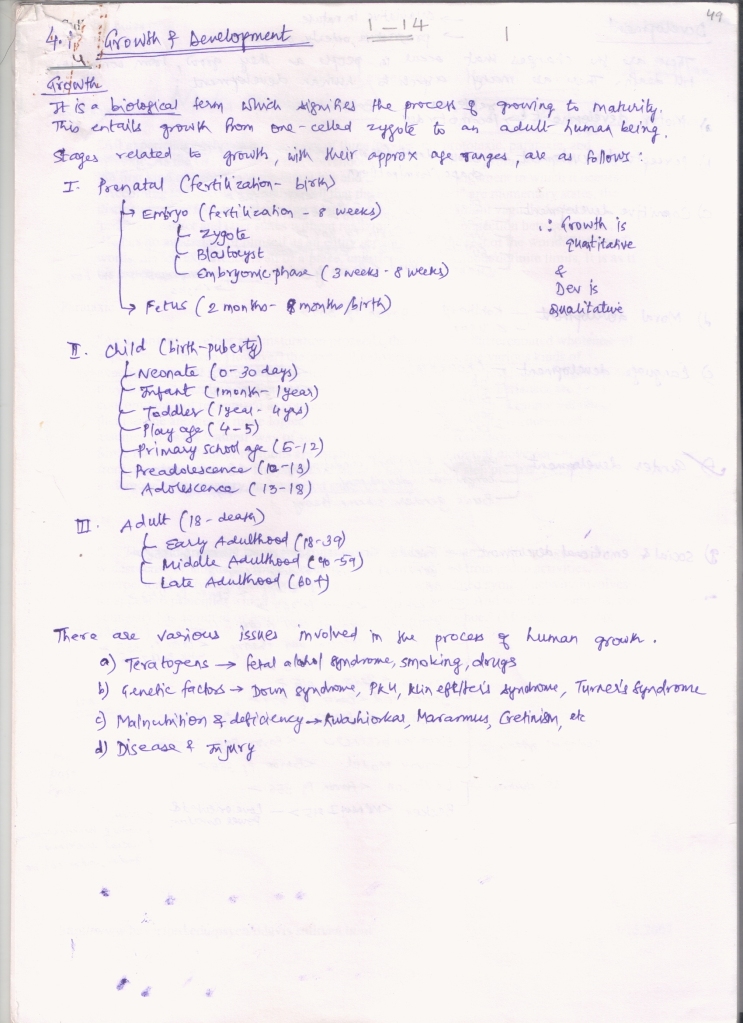
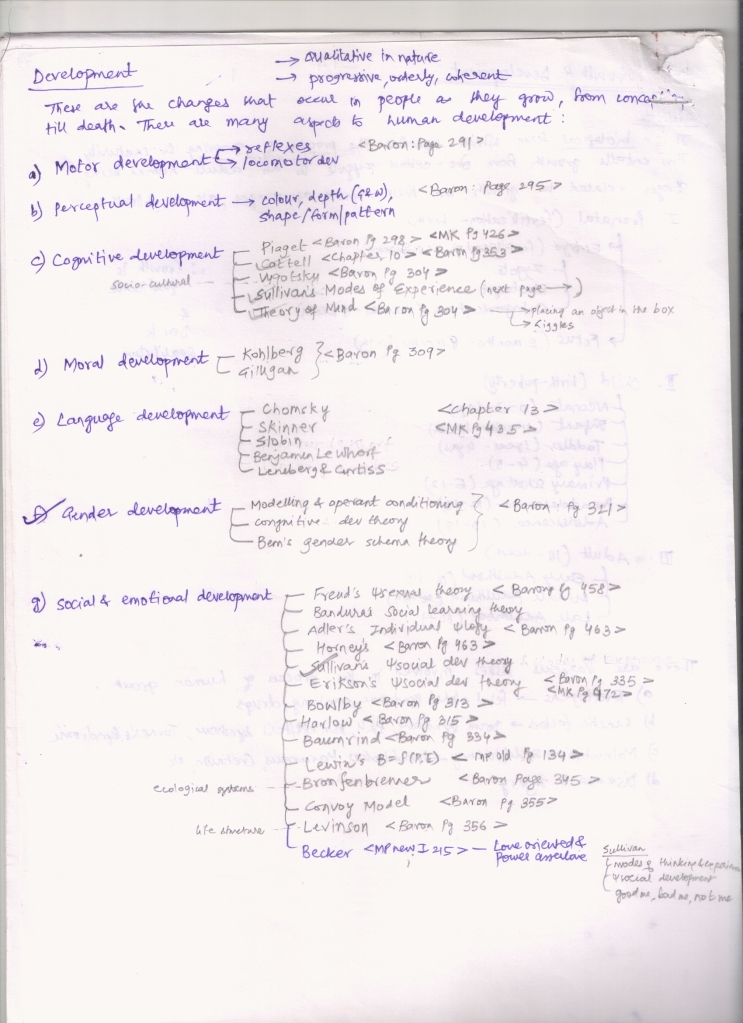
Paper 1- Chapter 5: Attention
It is well covered in Mukul Pathak sir’s notes and the models are explained very nicely in Morgan and King and other books. So I wrote everything in one place point-wise.
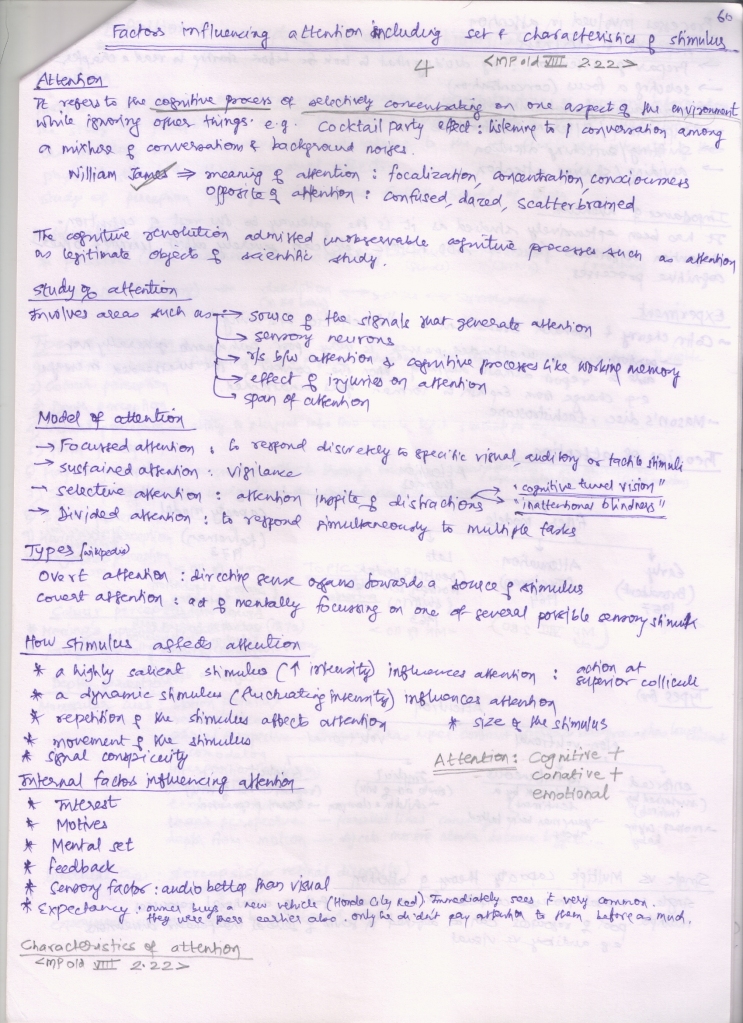

Paper 1- Chapter 12: Stereotypes and prejudices
It is an important topic not only for the psychology paper but even for other optionals such as Sociology, Essay and for GS. Since examples can be included very easily, I concentrated on collecting the keywords and theories that explain the two. This topic should be linked to other topics in both paper 1 and paper 2.


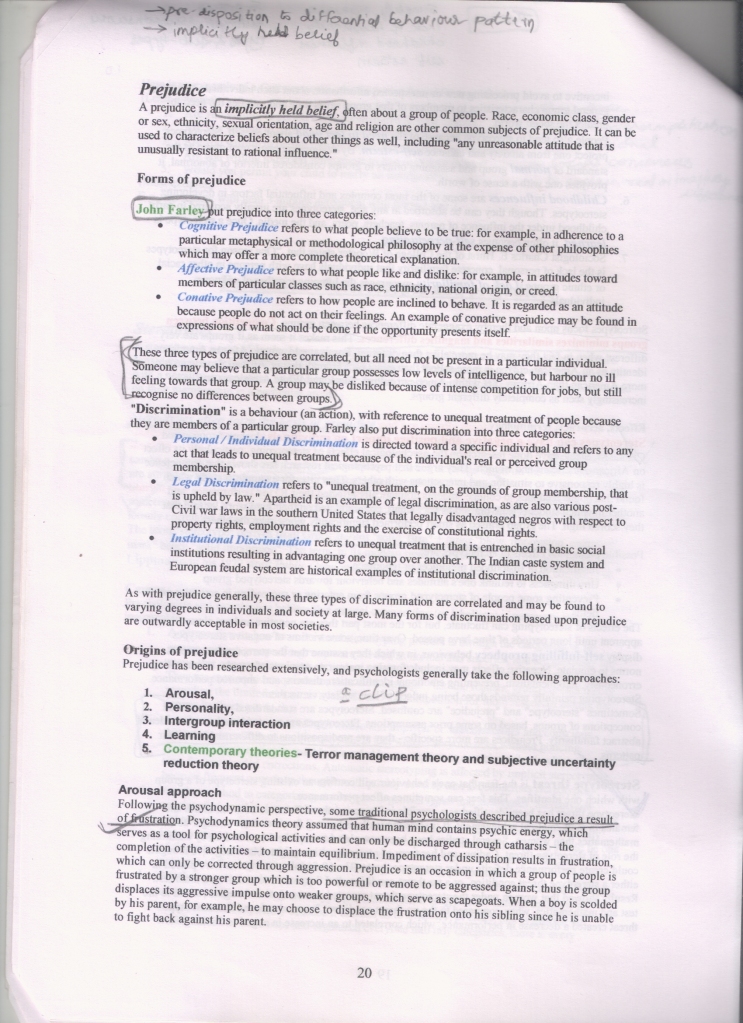
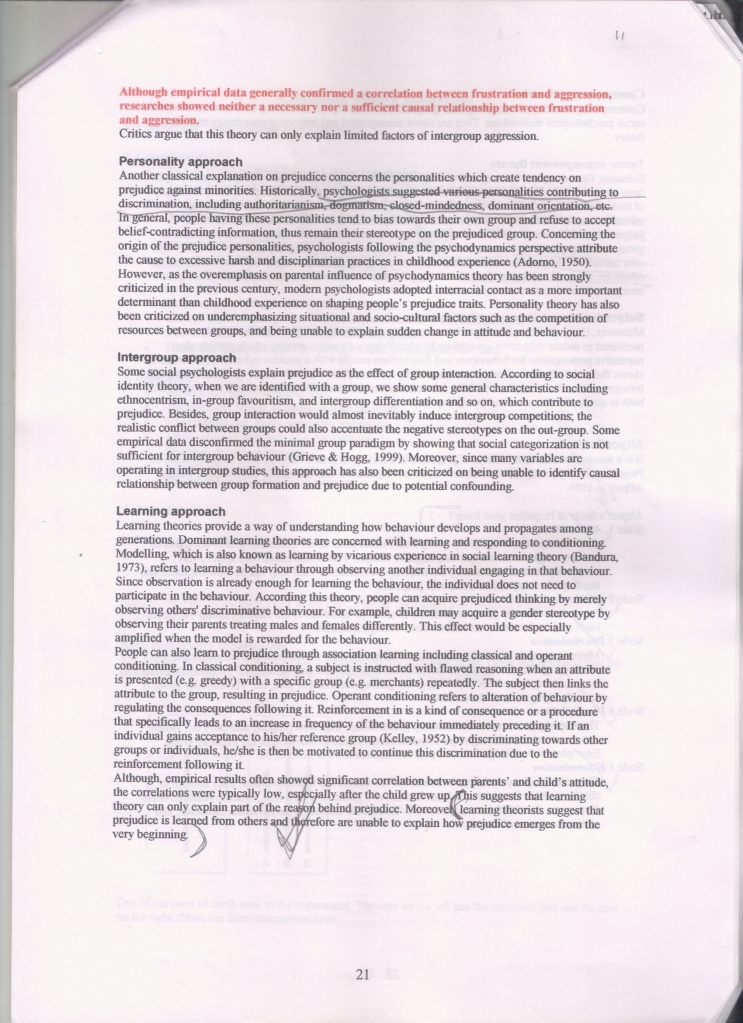
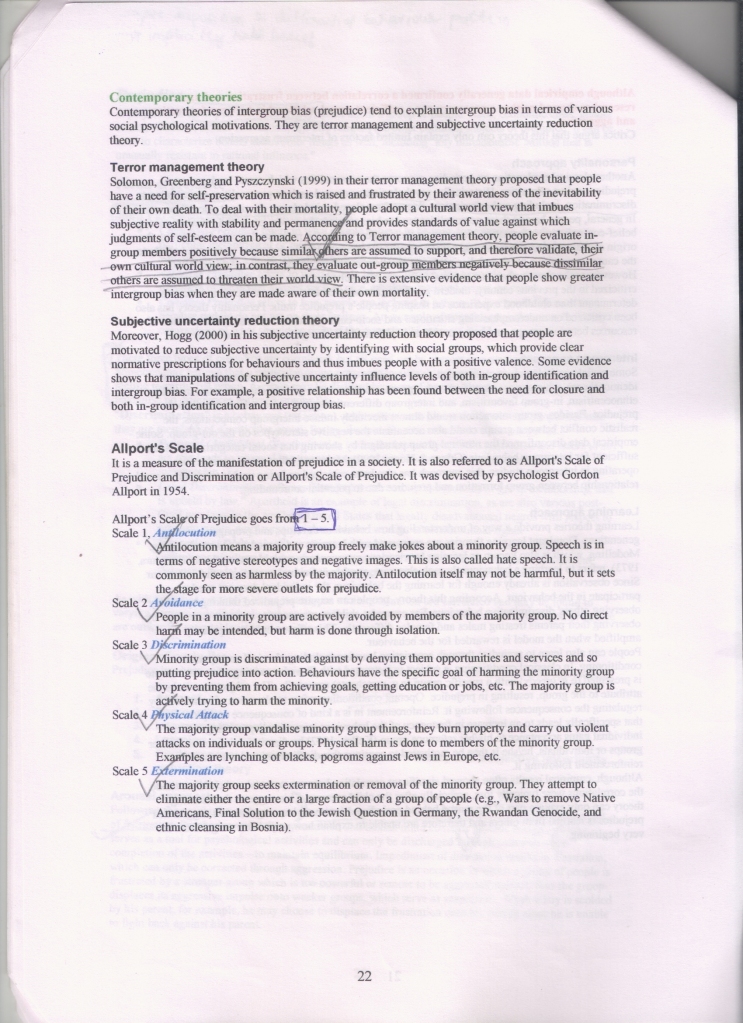
Paper 2- Chapter 7: Rehabilitation of HIV/AIDS victims
I am posting this topic because it is a classic example of those topics where a lot of material is available on the net, yet the time which might be invested in collecting data which is relevant might be much more than what you would invest if you think about the points on your own. I just collected some facts from the net.


Paper 2- Chapter 11: Government policies for promotion of entrepreneurship among youth including women entrepreneurs
Again a topic where we need to use our GS knowledge. I noted some of the schemes and institutes which I could find on the net. I added all the schemes and various bodies which are working in this field that I had come across in the India Yearbook.
I have uploaded only the 1st page. Details can easily be found on the net.

Paper 2- Chapter 13: Psychology of terrorism
I concentrated on collecting as many theories, key words and points as I could. Enough is available on the net.
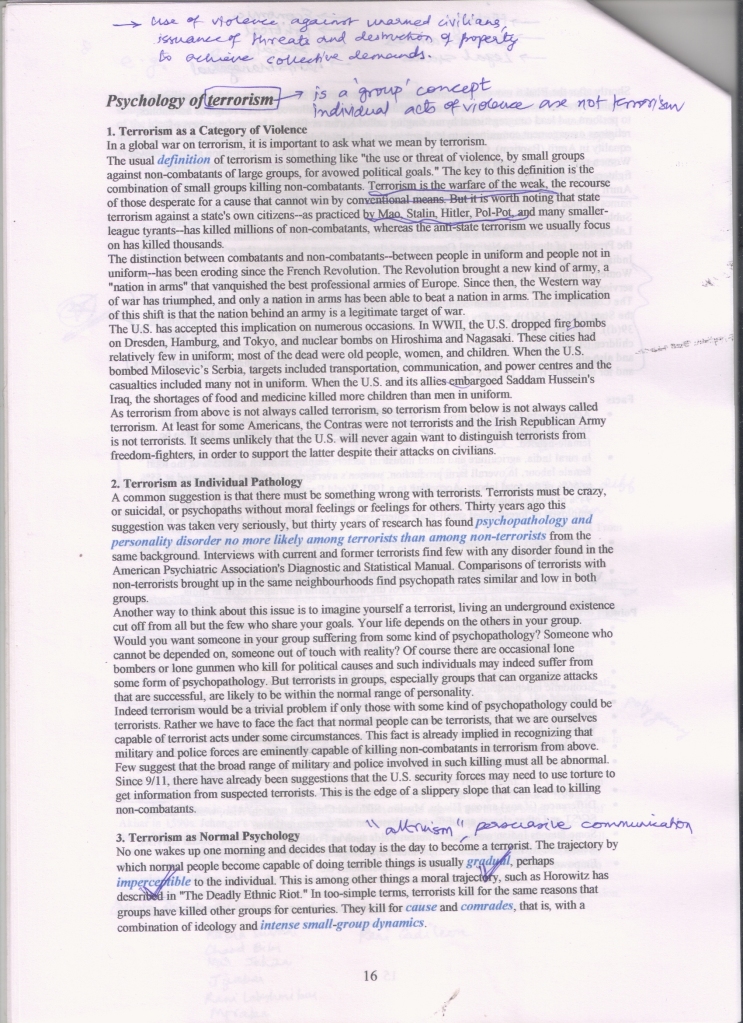

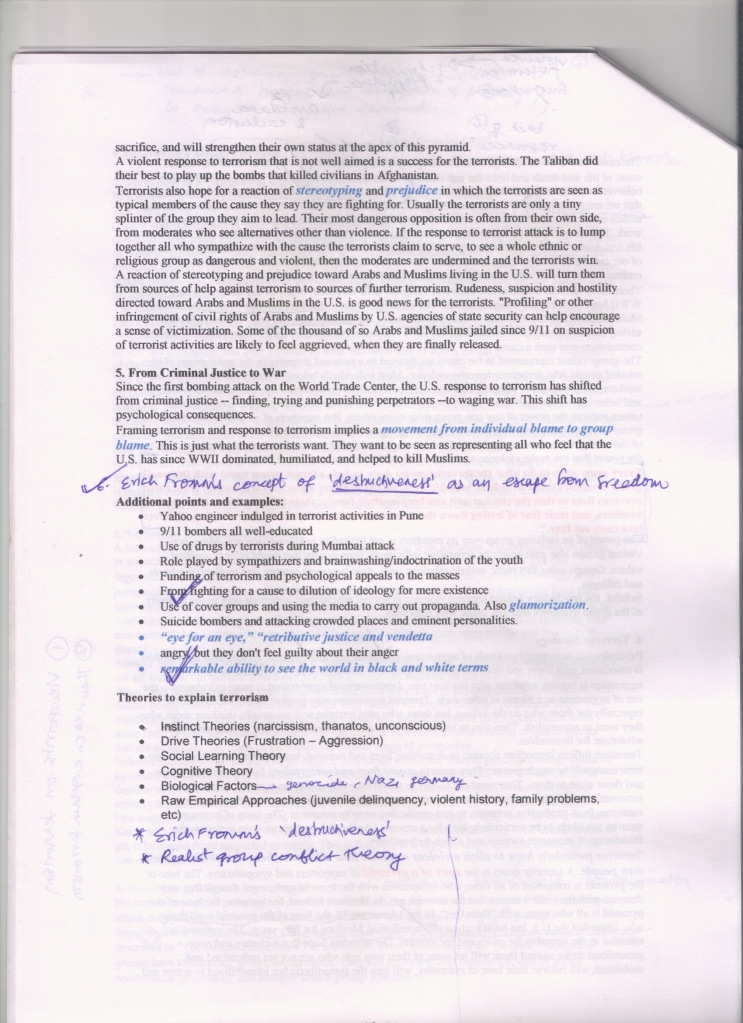
I will explain how I prepared the notes. But I repeat- this is the strategy I followed in 2009 for psychology. If what you are doing is very different, don’t worry. There are n number of ways to score. Just chalk out a plan and try your best to implement it.
MK: Morgan and King/ MP: Mukul Pathak sir’s notes/CK: Chaplin- Krawiec
Paper 1- Chapter 2: Observation
Since I prepared every topic as a 60 marker, for observation I collected 15-20 points which I could later expand in the exam. An easy way to do that is to compare the given topic with other related topics. So if observation alone comes as a 60 marker (most likely it will be in conjunction with some other topic), just link it with case studies, experimental research, interview, etc.


Paper 1- Chapter 3: IRT
Since IRT can be asked as a 60 marker, I prepared the basics in detail. There is no point in collecting 20 pages on it. Sometimes questions asked are very difficult to predict and attempt even when the topic has been prepared. In that case, I attempted some other question. But I didn’t go much beyond the basics. Every thing has to be balanced in the limited amount of time available for preparation.






Paper 1- Chapter 4: Growth and development
It is a topic which has been very well covered in the books. So I didn’t refer any other source. I just noted each and every thing I could find in one place so as to make revision easier. A lot of time can be saved this way.


Paper 1- Chapter 5: Attention
It is well covered in Mukul Pathak sir’s notes and the models are explained very nicely in Morgan and King and other books. So I wrote everything in one place point-wise.


Paper 1- Chapter 12: Stereotypes and prejudices
It is an important topic not only for the psychology paper but even for other optionals such as Sociology, Essay and for GS. Since examples can be included very easily, I concentrated on collecting the keywords and theories that explain the two. This topic should be linked to other topics in both paper 1 and paper 2.





Paper 2- Chapter 7: Rehabilitation of HIV/AIDS victims
I am posting this topic because it is a classic example of those topics where a lot of material is available on the net, yet the time which might be invested in collecting data which is relevant might be much more than what you would invest if you think about the points on your own. I just collected some facts from the net.


Paper 2- Chapter 11: Government policies for promotion of entrepreneurship among youth including women entrepreneurs
Again a topic where we need to use our GS knowledge. I noted some of the schemes and institutes which I could find on the net. I added all the schemes and various bodies which are working in this field that I had come across in the India Yearbook.
I have uploaded only the 1st page. Details can easily be found on the net.

Paper 2- Chapter 13: Psychology of terrorism
I concentrated on collecting as many theories, key words and points as I could. Enough is available on the net.



Posted by
n
at
8:26 PM
Public Admin- sample notes
I am going to try to explain how I prepared the notes. Examples, etc can either be prepared beforehand or you may come up with something then and there while writing the answer. Also, linking various topics is extremely important as it leads to a complete answer. I don’t mean topics only in Pub Ad paper 1 and Pub Ad paper 2, but also relating topics in Pub Ad paper 1 and Psychology Paper 1 OR Psychology paper 2 and GS.
PA paper 1:
I have posted the notes I prepared for Kautilya from Prasad & Prasad. Through this I attempt to achieve the following:
1. How to reduce what you have to read for the exam, in order to make it manageable to revise.
2. The content remains the same, it’s only the presentation and wording which changes depending on the question asked.
3. How you can look forward to relating the topics once your notes are ready.


So this is everything I did for topic 1 from chapter 1 of paper 2. Similarly, I prepared for Mughal Administration from Fadia and Fadia & tried to revise the 2-3 pages I had again and again so that I would be able to remember the content in the exam.
Next is a topic from paper 1, Chapter 12: Public borrowings and public debt
I covered this topic from Fadia & Fadia and searched on the net for some facts. After I was finished with enough content to write a 60 marker, I did not refer anything else. I emphasised on revising as many times as I could the content I had.
Also, I would like to point out that most of the data I collected even for paper 1 topics was that of India. I never differentiated whether the topic was mentioned in paper 1 or paper 2. Answer had to be based on India. This is what the right orientation and approach is all about, and was taught very well by Pavan sir.

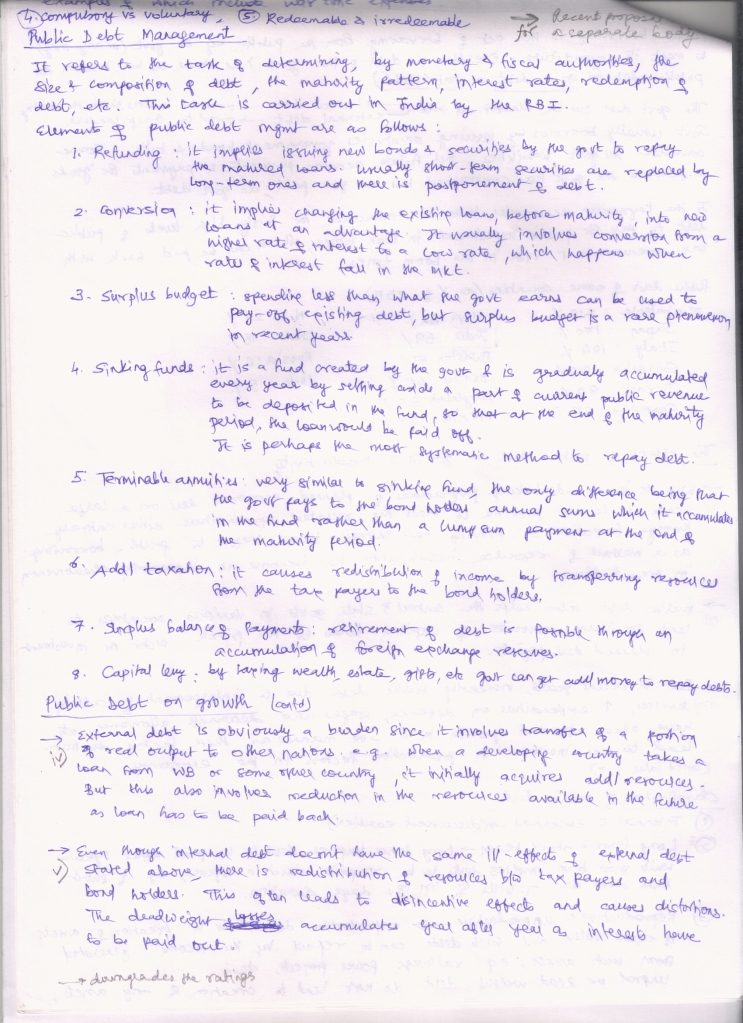
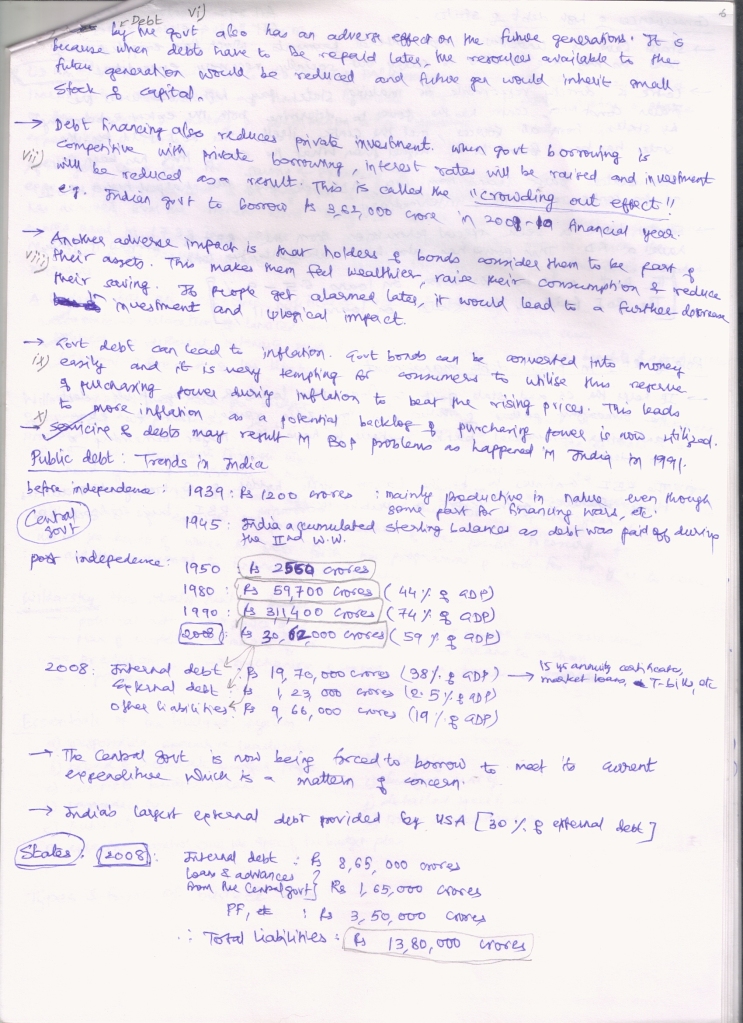

PA paper 1:
I have posted the notes I prepared for Kautilya from Prasad & Prasad. Through this I attempt to achieve the following:
1. How to reduce what you have to read for the exam, in order to make it manageable to revise.
2. The content remains the same, it’s only the presentation and wording which changes depending on the question asked.
3. How you can look forward to relating the topics once your notes are ready.


So this is everything I did for topic 1 from chapter 1 of paper 2. Similarly, I prepared for Mughal Administration from Fadia and Fadia & tried to revise the 2-3 pages I had again and again so that I would be able to remember the content in the exam.
Next is a topic from paper 1, Chapter 12: Public borrowings and public debt
I covered this topic from Fadia & Fadia and searched on the net for some facts. After I was finished with enough content to write a 60 marker, I did not refer anything else. I emphasised on revising as many times as I could the content I had.
Also, I would like to point out that most of the data I collected even for paper 1 topics was that of India. I never differentiated whether the topic was mentioned in paper 1 or paper 2. Answer had to be based on India. This is what the right orientation and approach is all about, and was taught very well by Pavan sir.




Subscribe to:
Comments (Atom)


